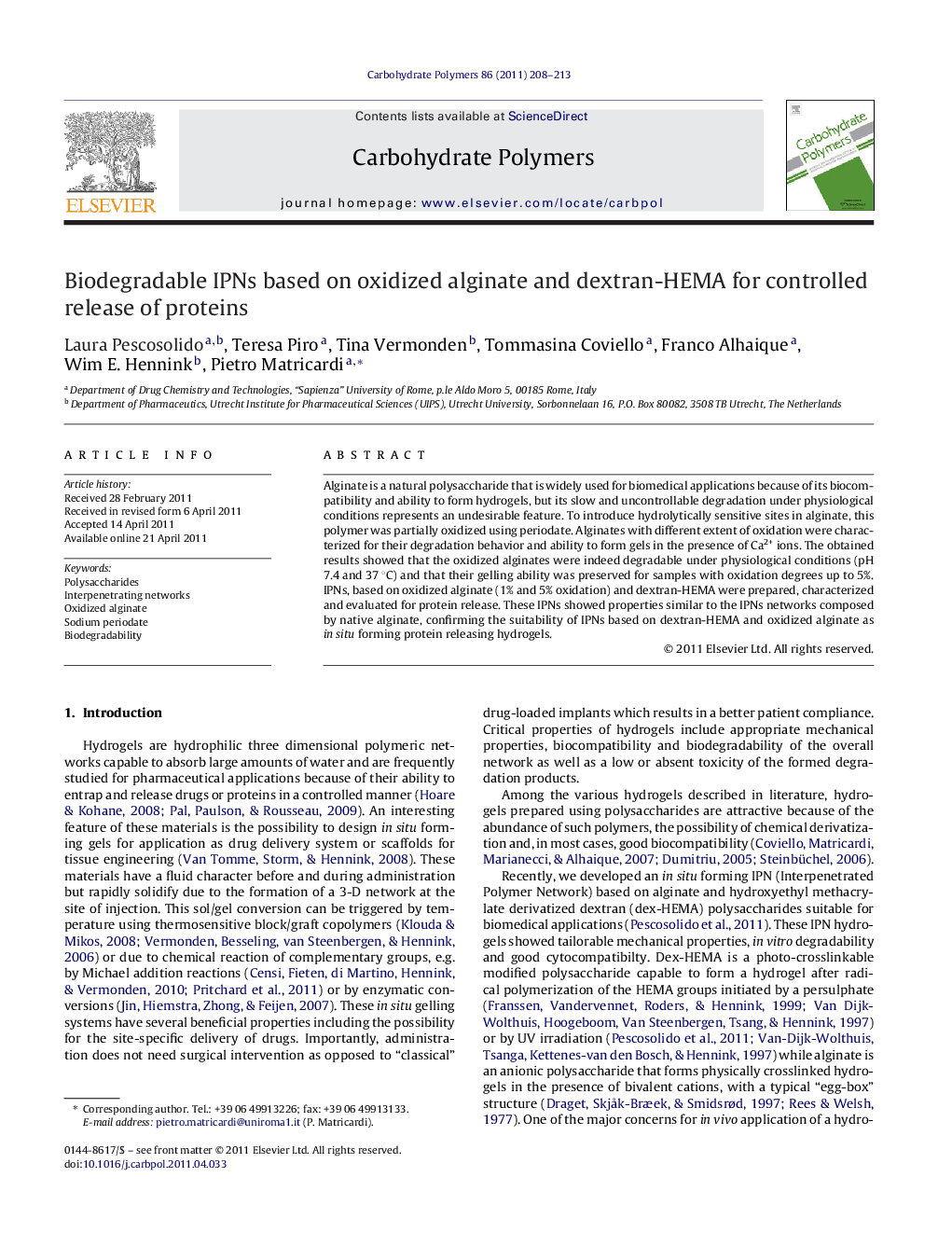| Article ID | Journal | Published Year | Pages | File Type |
|---|---|---|---|---|
| 10602125 | Carbohydrate Polymers | 2011 | 6 Pages |
Abstract
Alginate is a natural polysaccharide that is widely used for biomedical applications because of its biocompatibility and ability to form hydrogels, but its slow and uncontrollable degradation under physiological conditions represents an undesirable feature. To introduce hydrolytically sensitive sites in alginate, this polymer was partially oxidized using periodate. Alginates with different extent of oxidation were characterized for their degradation behavior and ability to form gels in the presence of Ca2+ ions. The obtained results showed that the oxidized alginates were indeed degradable under physiological conditions (pH 7.4 and 37 °C) and that their gelling ability was preserved for samples with oxidation degrees up to 5%. IPNs, based on oxidized alginate (1% and 5% oxidation) and dextran-HEMA were prepared, characterized and evaluated for protein release. These IPNs showed properties similar to the IPNs networks composed by native alginate, confirming the suitability of IPNs based on dextran-HEMA and oxidized alginate as in situ forming protein releasing hydrogels.
Related Topics
Physical Sciences and Engineering
Chemistry
Organic Chemistry
Authors
Laura Pescosolido, Teresa Piro, Tina Vermonden, Tommasina Coviello, Franco Alhaique, Wim E. Hennink, Pietro Matricardi,
